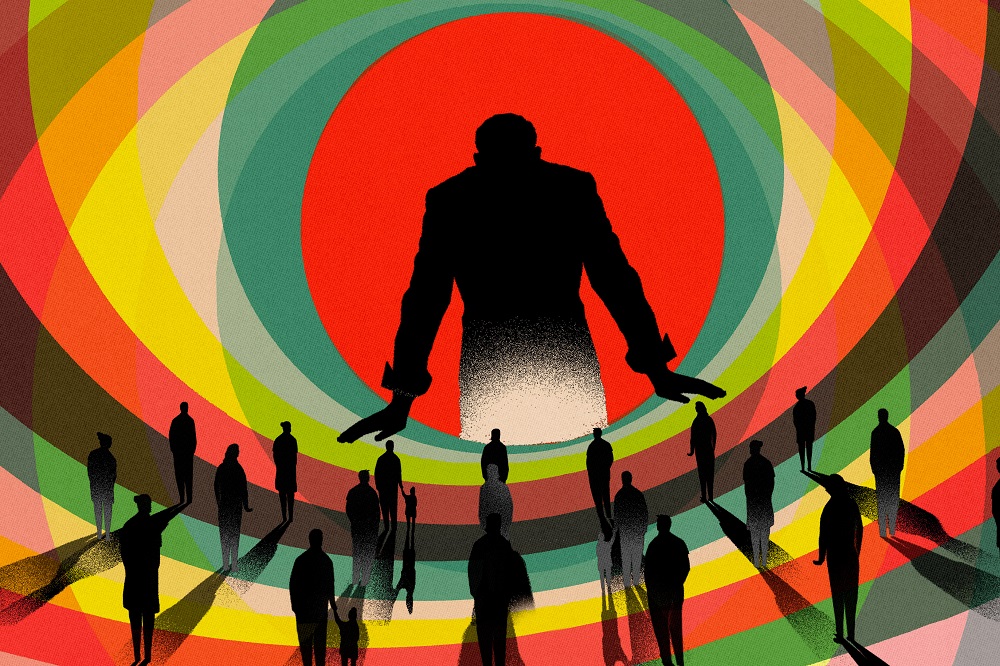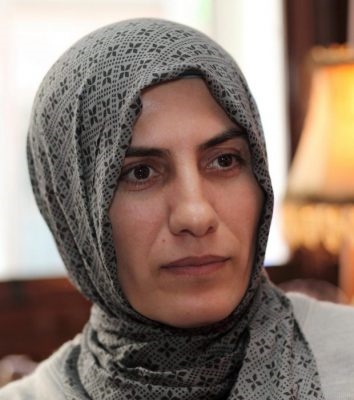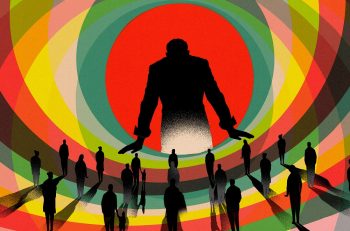‘Unless We Uphold the Individual as an Inviolable, the State will Transform all Governments into Its Own Shadow’

Journalist and author Gökçer Tahincioğlu emphasizes that the sanctification of the state and the culture of impunity are the real reasons why there is no real fight against the "deep state" and mafia networks, adding, "Unless we start upholding individuals as sacrosanct, the state will transform all governments into its own shadow. That is why we keep hearing the same words over and over again. Only the will to solve problems and the society's support can bring about true democracy.”
The mafia boss Sedat Peker has published a series of videos which have garnered much attention; however, the judiciary has not yet taken action concerning his allegations. Observers suggest that millions of people watch his videos because they have been produced in a way in tune with the functioning of social media. According to an opinion poll by Istanbul Economic Research, 24 percent of those who watch the videos consider that Peker’s words are “important and accurate”.
Interviewed by the Civil Pages, journalist and author Gökçer Tahincioğlu remarked that the videos have attested to the need for a transparent and accountable state structure. Tahincioğlu stated that Peker’s videos point out two issues: First of all, Susurluk is not over and in fact continues on a linear path, albeit in new ways and methods; and secondly, “there exists a major issue, whose reasons we can’t yet fully grasp, which has prompted Peker to shoot these videos that some people may sneer at.” Underlining the need to find answers to these questions in the framework of a transparent, accountable and controllable state structure, Tahincioğlu said, “Therefore, it is important that not only Peker, but all the involved actors speak more, and that more documents and information surface. Of course, there are conflicts which we do not yet know anything about, and various groups seek to capitalize on the current situation. That’s why transparency and accountability are important. So, we must insist on investigations which will reveal the real causes underlying these issues, and thus not provide any advantages to such groups.”
Neither the groups and actors who have become proxies of international structures, nor the groups which have created the current dire picture have the right to talk about a clean society.
‘The State and Government Maintain Mafia’s Guard’
Tahincioğlu indicated that from the Susurluk incident until date, there has been ongoing talk about the same individuals and unsolved murders, and that the demand for justice is still valid; pointing out that, the real difference between the two periods lies in the structure of power. Indicating that the Susurluk incident occurred in a period of fragile government coalitions, Tahincioğlu remarked, “That was a period marked by strong military tutelage. For this reason, although certain political groups displayed the will to address the problem, it could not be solved for good. Today military tutelage is no longer strong, yet the state and power still maintain their guard. Certain structures hope to capitalize on the current situation.”
As regards the international ramifications of the events, Gökçer Tahincioğlu emphasized that the issue cannot be comprehended independently of its international context: “The hypocrisy around the refugee issue, all this haggling, policies that strengthen human traffickers, people losing their lives and the support for criminal groups -all of these suggest that the picture we see today is the result of international networks. Those who have less of a responsibility may be content with saying, ‘We are concerned about Turkey’” said Tahincioğlu: “Neither the groups and actors who have become proxies of international structures, nor the groups which have created the current dire picture have the right to talk about a clean society.” Noting that the issue should be settled by the Turkish society, Tahincioğlu added, “Since that’s not happening, we keep talking about the same problems. Indeed, this presents an opportunity for the government, yet they fail to see this,” he argued.
“The Picture is Dark for the Next Generation”
Emphasizing that the failure of the judicial system will take a heavy toll on the entire society, Gökçer Tahincioğlu said, “The issue is not limited to Peker and his allegations. We need to know why convicted gang members are respected so much by the state, why mafia groups are tolerated, why certain individuals are constantly accused of treason, and why all these things are happening -that is, the real reasons behind all of this. Of course we have certain ideas and opinions. However, the actual chain of events should be disclosed and investigated. Otherwise, the picture will grow even darker for the next generation.”
In the current state of things, the civil society is intimidated with lawsuits and investigations, and also exposed to threats from such criminal groups. Furthermore, the society underwent a coup attempt, got over it, but still suffered seriously in the ensuing atmosphere. Unfortunately, unless the state’s existing codes are challenged, the state cannot overcome these problems and the civil society stands little chance of expanding its space.
Arguing that the sanctification of the state and the culture of impunity prevent a real confrontation and reckoning, Tahincioğlu indicated, “Some think that the state will find itself in a difficult position if the perpetrators, torturers, and their supporters are exposed. They consider that the police, gendarmerie and bureaucracy could lose power as a result. No, thousands of people work hard, in keeping with ethical values and the laws. States across the world have numerous weaknesses. One such weakness is that state officials think that they embody the state. Unless we instead start upholding the individual as sacrosanct, the state will transform all governments in its own image. That is why we keep hearing the same words over and over again. Only the will to solve problems and the society’s support can bring about true democracy. I do not believe that any government could take such radical steps as long as the society remains indifferent.”
“It Is Not Possible for The State to Overcome This Without Changing Its Existing Codes”
Evaluating the impact of the matter on the civil society, Tahincioğlu said, “”Periods when the civil society is constricted and throttled have peculiar characteristics. One of these is the emergence of intimidating groups. These may be paramilitary forces, or mafia groups. The scenes we have recently witnessed give us a clear picture. In the current state of things, the civil society is intimidated with lawsuits and investigations, and also exposed to threats from such criminal groups. Furthermore, the society underwent a coup attempt, got over it, but still suffered seriously in the ensuing atmosphere. Unfortunately, unless the state’s existing codes are challenged, the state cannot overcome these problems and the civil society stands little chance of expanding its space.”



Bizi Takip Edin